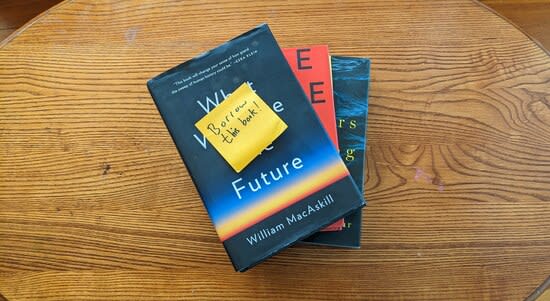EA books give a much more thorough description of what EA is about than a short conversation, and I think it's great that EA events (ex: the dinners we host here in Boston) often have ones like Doing Good Better, The Precipice, or 80,000 Hours available. Since few people read quickly enough that they'll sit down and make it through a book during the event, or want to spend their time at the event reading in a corner, the books make sense if people leave with them. This gives organizers ~3 options: sell, lend, or give.
Very few people will be up for buying a book in a situation like this, so most EA groups end up with either lending or giving. I have the impression that giving is more common, but I think lending is generally a lot better:
A loan suggests that when you're done reading the book you've considered the ideas and don't need the book anymore. Giving suggests it's more like doctrine you keep and reference.
You don't get back all the books you lend, and that's ok, but in my experience we do get most of them back. Lending out the same book over and over is a lot cheaper than buying a new book each time. Giving books is (and looks) unnecessarily lavish.
Returning the book offers a chance to talk about reactions.
Lending out books doesn't mean you need to run it like a library, with records and late fees. We've put the books out with stickies saying "borrow this book", they go out, and they mostly come back again.



I like the idea of thinking of this as a spectrum! When I've done tabling, however, (only a little, when I was at Google) I still found loaning worthwhile: since we're all regularly coming to the same campus returning things wasn't that hard. And if someone had acted like they didn't think they'd be able to return it I'd have told them not to stress about it and to pass it on to someone else when they were done.
(Not trying to pick on you or your group! And you're better placed to figure out what's working for you.)